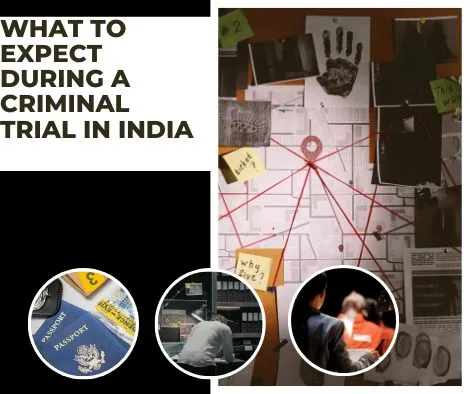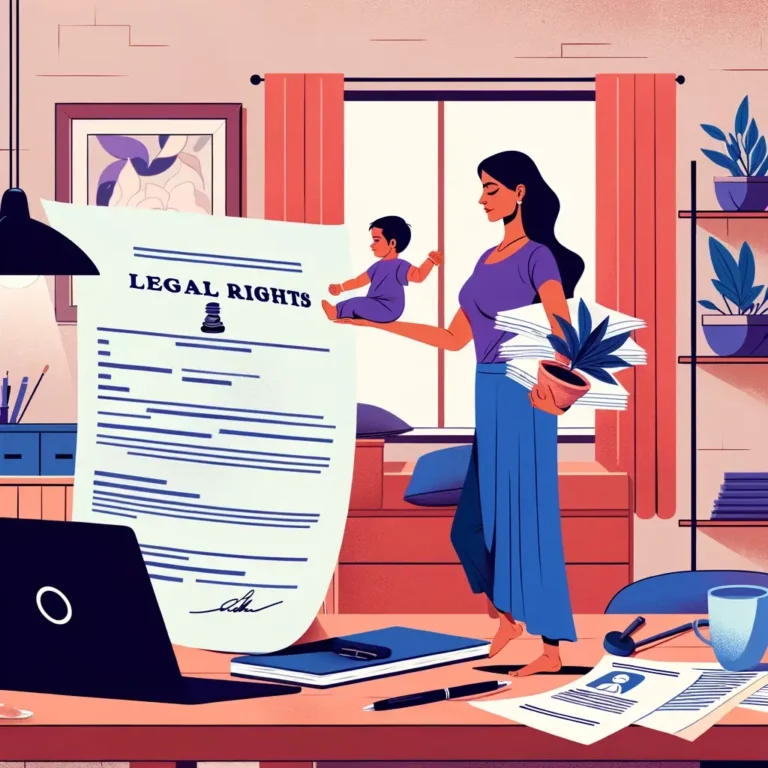In this article we have explained Do I Need a Lawyer for Civil Cases?
Introduction :-
Navigating the complexities of civil legal matters can be a challenging and intricate process. Whether you find yourself entangled in a contractual dispute, facing personal injury claims, or dealing with issues related to property, the question often arises: “Do I need a lawyer for civil cases?” In this exploration, we delve into the essential considerations that individuals must weigh when deciding whether to seek legal representation in civil proceedings.
Civil cases cover a broad spectrum of legal disputes between individuals, businesses, or entities, excluding criminal matters. The decision to involve a lawyer is a pivotal one, as it can significantly impact the outcome of your case and determine the protection of your rights and interests. This inquiry extends beyond a simple yes or no, encompassing various factors that must be evaluated based on the unique circumstances of each case.
Do I Need a Lawyer for Civil Cases?
Understanding Civil Cases
The Role of Lawyers in Civil Litigation
Assessing the Necessity of Legal Representation
Introduction
Civil cases, which encompass a broad range of legal disputes between individuals or entities, often bring up an important question: “Do I need a lawyer?” This article aims to guide you through the decision-making process, highlighting the roles and benefits of having legal representation in civil litigation.
Understanding Civil Cases
Civil litigation involves non-criminal disputes ranging from personal injury claims to contract disagreements. Unlike criminal cases, where the government prosecutes someone for violating laws, civil cases typically revolve around private disputes. The outcomes usually involve monetary compensation or specific performance rather than criminal penalties.
The Role of Lawyers in Civil Litigation
Lawyers in civil cases serve multiple roles:
- Advisors: They provide legal advice based on the specifics of your case.
- Negotiators: Skilled in negotiation, lawyers often reach settlements favorable to their clients.
- Advocates: In court, lawyers represent your interests, presenting evidence and arguments to support your case.
When Is a Lawyer Essential?
- Complex Legal Issues: If your case involves intricate laws or complex legal procedures, a lawyer’s expertise becomes invaluable.
- High Stakes: In cases where large sums of money or severe consequences are at stake, legal expertise can be crucial.
- Contractual Obligations: When contracts are involved, lawyers can interpret and challenge contractual terms effectively.
Situations Where Self-Representation Might Suffice
- Small Claims Court: For relatively minor disputes, self-representation is often adequate.
- Clear-Cut Cases: If the facts are straightforward and the law is on your side, you might manage without a lawyer.
Evaluating Your Specific Situation
Consider the following before deciding:
- Legal Complexity: Are the laws governing your case complex?
- Risk Assessment: What are the potential losses or gains?
- Personal Comfort: Are you comfortable researching and understanding legal procedures?
FAQs on “Do I Need a Lawyer for Civil Cases?”
- What is a civil case?
- A civil case is a legal dispute between two or more parties (individuals, businesses, or other entities), typically involving private rights and non-criminal matters.
- When should I consider hiring a lawyer for a civil case?
- Consider hiring a lawyer if your case involves complex legal issues, significant financial stakes, contract disputes, or if you’re unsure about navigating the legal system.
- Can I represent myself in a civil case?
- Yes, you can represent yourself, known as “pro se” representation, especially in simpler or small claims cases.
- What are the risks of self-representation?
- Risks include lack of legal knowledge, potentially overlooking legal rights, misinterpreting laws, and procedural errors that could weaken your case.
- Are lawyers necessary for small claims court?
- Lawyers are usually not necessary for small claims court, as these courts are designed for simpler, lower-value disputes.
- How do I know if my case is suitable for small claims court?
- If your case involves a relatively small amount of money (the limit varies by jurisdiction) and is straightforward, it might be suitable for small claims court.
- What types of cases are considered civil cases?
- Civil cases include personal injury, breach of contract, property disputes, family law matters, and more.
- How much does hiring a lawyer for a civil case cost?
- Costs vary widely based on case complexity, lawyer’s experience, and geographic location. Some lawyers charge hourly, while others may work on a contingency fee basis.
- Can I get a free consultation with a lawyer?
- Many lawyers offer free initial consultations to discuss your case and determine how they can help.
- What should I prepare for a consultation with a lawyer?
- Prepare relevant documents, a summary of the situation, a list of questions, and any specific concerns you have about the case.
- What is a contingency fee?
- A contingency fee is a payment arrangement where the lawyer receives a percentage of the settlement or award, only if you win the case.
- Do all civil cases go to trial?
- No, many civil cases are settled out of court through negotiations or mediation.
- What is mediation in a civil case?
- Mediation is a process where a neutral third party helps the disputing parties reach a mutually agreeable solution.
- Is it better to settle or go to trial?
- This depends on your case specifics, risks, potential rewards, and personal preferences. Lawyers can provide advice based on these factors.
- What happens if I lose a civil case?
- If you lose, you may be required to pay monetary damages or fulfill other obligations as ordered by the court.
- Can I appeal a civil case decision?
- Yes, you can usually appeal, but appeals are complex and have specific procedural requirements.
- What is the difference between a civil and criminal case?
- Civil cases involve disputes between parties over rights and liabilities, while criminal cases involve actions considered harmful to society and are prosecuted by the government.
- Can a case be both civil and criminal?
- Yes, some situations can give rise to both civil and criminal proceedings, although they are handled separately.
- How long does a civil case typically take?
- The duration varies greatly depending on case complexity, jurisdiction, and whether it goes to trial.
- Do I need a lawyer for a divorce case?
- While not mandatory, a lawyer can be very helpful in navigating the legal complexities of divorce, especially if there are significant assets, children, or disagreements.
- How do I find the right lawyer for my civil case?
- Research lawyers who specialize in your type of case, check their credentials and reviews, and consider meeting with several before deciding.
- What is a civil lawsuit?
- A civil lawsuit is the process of taking legal action in a civil court to resolve a dispute between parties.
- What are damages in a civil case?
- Damages are monetary compensation awarded to a party who has suffered loss or harm due to the other party’s actions or negligence.
- Can I negotiate a settlement without a lawyer?
- Yes, but having a lawyer can help ensure that your rights are protected and you get a fair settlement.
- What does ‘burden of proof’ mean in a civil case?
- It refers to the obligation to prove allegations are true, typically resting on the party who initiates the lawsuit.
- Is legal insurance worth it for civil cases?
- Legal insurance can help cover legal costs and might be beneficial if you anticipate potential legal issues.
- Can I sue someone for emotional distress in a civil case?
- Yes, emotional distress can be grounds for a lawsuit, but proving it typically requires substantial evidence.
- What is a counterclaim in a civil lawsuit?
- A counterclaim is a claim brought against the plaintiff by the defendant in the same lawsuit.
- How do class action lawsuits work?
- In a class action, a group of people with similar claims collectively sue a defendant.
- What is a settlement conference?
- A settlement conference is a meeting between parties in a lawsuit to try to resolve the case before it goes to trial.
















